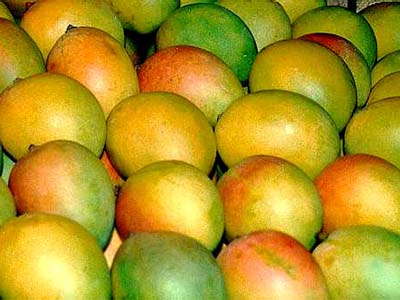Moving plant goods within Australia
 4 December 2015
4 December 2015
Movement of plants and plant products from one part of Australia to another can readily spread pests, weeds and plant disease so it is important that you respect and follow the correct quarantine procedures if moving plant goods within or across state and territory borders. This meets the rules on movement of plant materials and importantly helps minimise risk to Australia’s unique environments and valuable agricultural markets.
To move commercial consignments of plants, fruit or vegetables interstate, they need to be certified as free of pests, diseases and weeds. Depending on the product, you may need to get a Plant Health Certificate or Plant Health Assurance Certificate.
Rod Turner, Chair of the Subcommittee on Domestic Quarantine and Market Access, advises that to obtain these certificates, you can either:
- get a government inspector to certify that your goods meet quarantine conditions; or
- obtain accreditation for your business under the Interstate Certification Assurance (ICA) Scheme.
“A government inspector can certify your goods on a case-by-case basis, but this can quickly become an expensive and time consuming process. For producers who frequently move goods interstate or between quarantine zones, applying for your business to be accredited could be a better option in terms of time, flexibility and money,” said Rod.
“Once a business is accredited, it assumes responsibility for specified treatments, inspections or other processes, and can issue Plant Health Assurance Certificates for its own produce.”
Quarantine authorities carry out audits on a business to ensure it continues to meet its obligations and for it to maintain accreditation.
“Treatments can include dipping, spraying, heat or cold treatment and inspections. Each type of produce may require a number of these procedures, depending on their origin and destination.”
For example, a producer in Queensland who wished to send Kensington Pride, Calypso, R2E2 and Honey Gold mangoes to South Australia to would need to follow ICA 19, together with ICA 1, 2 or 3. ICA’s 4, 5, 10 and 55 are alternatives to ICAs 1, 2 or 3. Other types of mangoes also require additional pre-harvest chemical treatments.
Current ICA operational procedures for each state and Northern Territory are available from the ICA database.
[gdlr_quote align=”center” ]Quarantine requirements may change as new pests, diseases and weeds are detected, so make sure you stay up-to-date by contacting your local ICA supervisor at the time of consignment.[/gdlr_quote]“Quarantine requirements may change as new pests, diseases and weeds are detected, so make sure you stay up-to-date by contacting your local ICA supervisor at the time of consignment,” recommends Rod.More information about the ICA scheme and the contact details for plant quarantine regulators is available from the Australian Interstate Quarantine website.